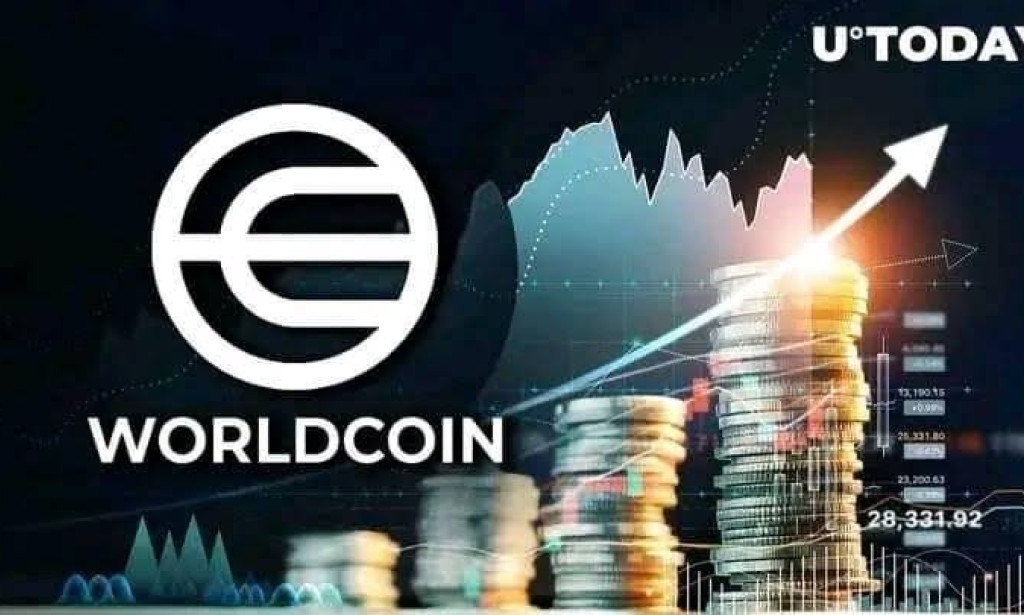In recent years, cryptocurrency has become a disruptive force in the global financial system. However, a new project is taking this disruption a step further. Worldcoin, a pioneering digital currency launched in 2021, is focused on offering both financial access and a global digital identity to billions of people around the world. But its ambitious goals—along with the novel technology behind it—have sparked both excitement and skepticism in equal measure.
The Worldcoin network is unique in that it combines cryptocurrency with biometric data, specifically iris scanning, in an effort to create a universal and secure digital identity for users. The aim is to create a blockchain-based platform where every individual can receive a share of the Worldcoin currency simply by verifying their identity through an eye scan. This system, known as "Orb," is designed to ensure that each user can only claim a single share of the currency, preventing fraud and duplication in the distribution process.
The idea behind Worldcoin is to provide a truly inclusive global currency system. The founders of Worldcoin envision it as a means to bridge the financial divide, particularly for people in underbanked regions who lack access to traditional banking services. By offering a universal basic income (UBI) through the Worldcoin cryptocurrency, the platform aims to provide a safety net for millions of people around the world, ensuring that they have access to digital assets and can participate in the new decentralized economy.
Worldcoin's potential to drive financial inclusion is significant, especially in regions where access to banking infrastructure is limited or non-existent. The project's ambition is to onboard millions of people, particularly from developing countries, by giving them access to a global digital economy that would otherwise be out of reach. With financial transactions facilitated through blockchain technology, users could send, receive, and store their Worldcoin without relying on traditional banks or payment systems.
However, Worldcoin's reliance on biometric data has raised several concerns. The "Orb" technology, which scans a person’s iris to verify their identity, has sparked privacy debates. Critics argue that storing biometric information—even if anonymized—poses significant risks in terms of data security, potential misuse, and surveillance. There are fears that this model could pave the way for authoritarian governments or malicious actors to exploit the data for surveillance or other nefarious purposes.
In addition, questions about the project’s centralized nature linger. Despite being based on blockchain, which is inherently decentralized, the process of collecting biometric data and the control over the Worldcoin network remains concentrated within the hands of the project’s founders and developers. This raises concerns about the long-term sustainability of the system, and whether a truly decentralized digital identity can ever be achieved through a system that relies so heavily on centralized control for the distribution of currency and the collection of personal data.
Furthermore, Worldcoin is entering a complicated regulatory environment. As governments around the world take a closer look at cryptocurrencies and blockchain technology, regulatory frameworks are still being developed. Worldcoin's combination of digital identity and cryptocurrency puts it at the intersection of finance, privacy, and data protection law. Different countries may have varying legal stances on data privacy, surveillance, and the use of biometric information, meaning Worldcoin could face legal hurdles and scrutiny as it seeks to expand globally.
Despite the challenges and risks, the potential impact of Worldcoin is significant. The project’s vision of a more equitable global economy, where individuals in developing countries can access financial services, could change the way we think about wealth distribution and global financial systems. By leveraging blockchain technology, Worldcoin has the opportunity to decentralize power and give people ownership of their financial futures—without reliance on traditional banking systems that often exclude large swaths of the population.
The roll-out of Worldcoin is still in its early stages, but its ambitious goals have already set the stage for a wider conversation about the future of money, identity, and privacy in a rapidly changing digital world. Whether Worldcoin will succeed in its mission to create a truly inclusive global currency system or face insurmountable challenges remains to be seen.


You must be logged in to post a comment.